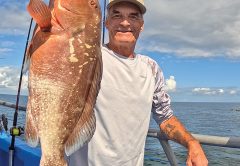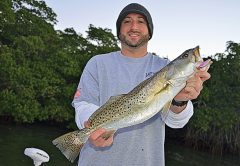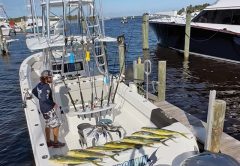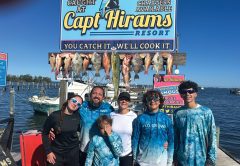The Tug Singleton is getting closer to becoming St. Lucie County’s sixth tugboat artificial reef. A grant contract with the Florida Fish and Wildlife Conservation Commission (FWC) to provide funding for this new reef has been approved. A contract with McCulley Marine Resources (MMS) has also been approved. This contract provides funds for MMS to thoroughly clean the Tug Singleton before deploying her in 150-to-160 feet of water.
Cleanup will be thorough but must be expedited due to the impending hurricane season which peaks in activity in early September. While keeping the tugboat afloat, MMS has already managed to drain and remove fuel lines, lubricants, and hydraulics. This prevented environmental issues from occurring if the Singleton had sunk. Broken windows were also removed that were dangerous to people working on or touring the vessel. Inspection of the boat by FWC personnel revealed that there are no residues which could cause a sheen during deployment. Nevertheless, MMS insists on steam cleaning the Tug Singleton out of caution. The FWC also requested that all external railings on the tugboat be removed to prevent fishing lines from becoming entangled. MMS still has much work in preparing this boat.
The Marine Cleanup Initiative (MCII) has also started its campaign to raise awareness of the tugboat and raised $1,900 for the deployment of the Tug Singleton at an event held at Little Jim Bait and Tackle premises. This event spotlighted the St. Lucie County Artificial Reef Program and highlighted both the Summerlin’s and McCulley’s roles in developing artificial reefs offshore St. Lucie County. Featured at the event was a Summerlin Fish Fry and auction by MCII that included a surfboad built and donated by the program’s very own John Barrell.
MCII is also selling Reefball artificial reef modules for placement on the Tug Singleton prior to deployment. These modules were purchased from and delivered by the Reefball Foundation and Reef Innovations at a discounted price and will be attached to every deck on the tug. Researchers at Florida Atlantic University’s Harbor Branch Campus and Florida State University are interested in studying these modules should they recruit deepwater ivory tree corals (Oculina varicosa). Small Reefballs are being used in hopes of moving the modules to other reefs once corals develop. Other deepwater artificial reefs could host corals attached to these modules; the largely impacted Oculina Banks coral reefs might also be able to accept corals recruited to these modules, pending outcomes of genetic testing.
For more information on the St. Lucie County Artificial Reef Program, contact Jim Oppenborn, St. Lucie County Coastal Resources Coordinator, at oppenbornj@stlucieco.org or (772) 462-1713. For information on the Marine Cleanup Initiative, contact Arnie Stirzinger at info.marinecleanup@gmail.com or (772) 207-6775.




